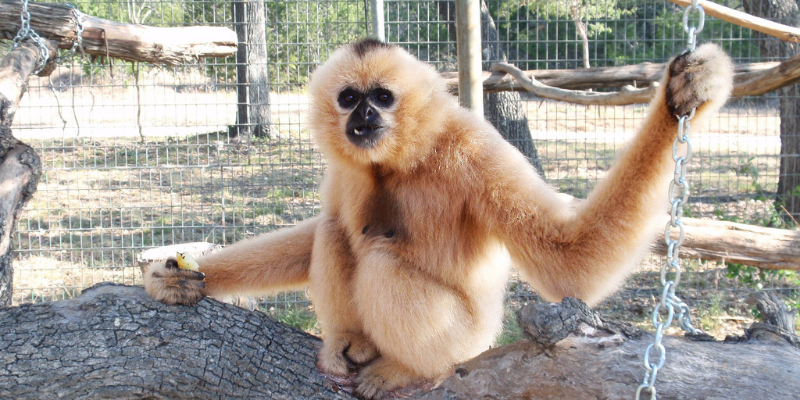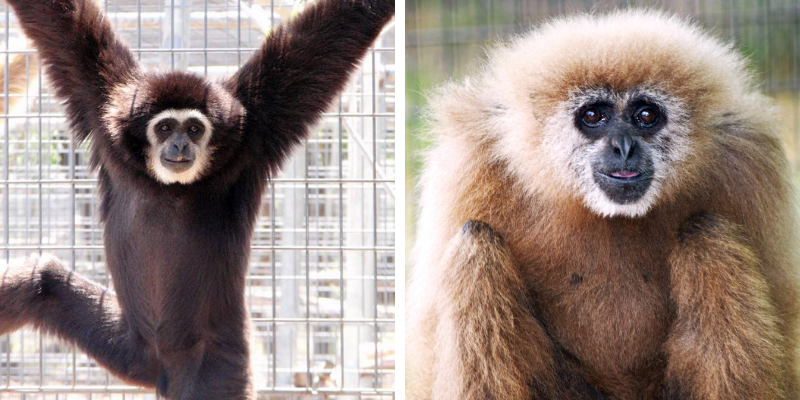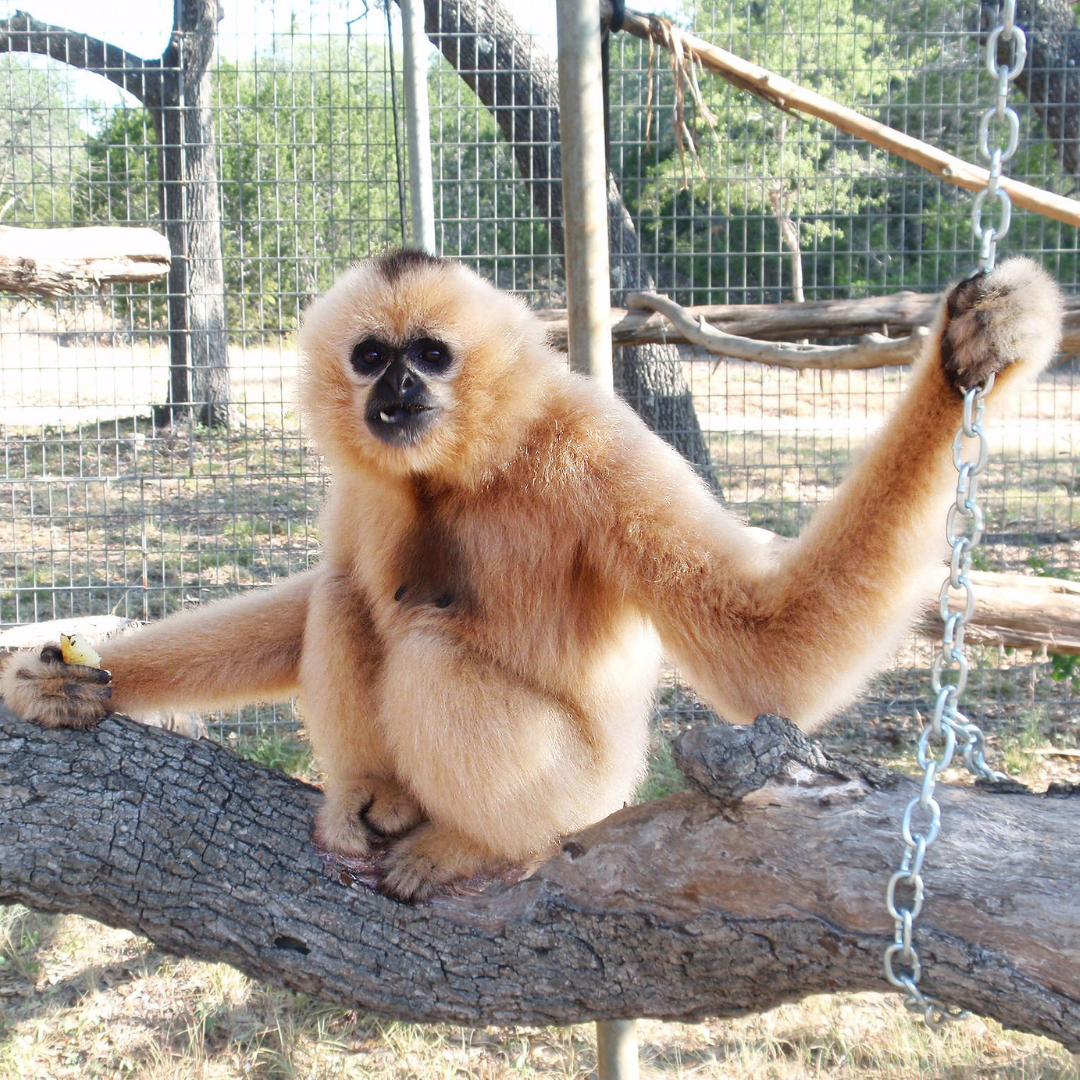
Primarily Primates cares for four gibbons: Kimchi, Jose Maria, Junior and Sko-sho. Kimchi and Jose Maria are ex-pets. Junior was born at a Texas zoo in 1976 and Sko-sho is his daughter.
In the wild, gibbons are found throughout the tropical forests of southeast Asia and Indonesia. Unlike the other apes—the heavyweight gorilla, chimpanzee and orangutan—gibbons weigh only 10 to 20 pounds, although their dense fluffy fur makes them appear bigger.
Gibbons have a distinct anatomical feature from other apes as well—tough, horny pads on their buttocks fused to the hip bones. These sitting pads are indispensable because gibbons do not build sleeping nests. The pads guarantee comfortable nights seated on narrow branches high in the forest canopy safe from predators.
It is mesmerizing to watch our gibbons use their strong, long, slender arms to swing along lightly and effortlessly in their habitat. Gibbons can leap distances of 30 feet or more.

But perhaps the most striking thing about gibbons is the sound they make, especially the swooping high-pitch songs of the females. The clear hooting notes begin slowly, then swell and accelerate until they coalesce into an elaborate melody of great carrying power.
When white-handed gibbon Junior vocalizes, care staff members say it sounds like he is singing the bass part in a choir of gibbons. Junior and Sko-Sho sing the most beautiful duets in the mornings that can be heard throughout the entire sanctuary.
Gibbons have the following basic vocalizations they emit in different contexts: normal duets (structured vocalizations given by the mated pair usually during the mid-morning or afternoon); "ooaa" duets (like normal duets but rarer); calls emitted when predators are seen; in times of alarm; during territorial disputes or conflict; adult male solos (often given early in the day, near dawn or before), subadult male solos, adult female solos (given by mated females when isolated) and contact calls.
Kimchi is the only gibbon at our sanctuary that engages in rhythmic dancing to solicit attention from care staff. It is a sight to see. Kimchi loves being the center of attention. She also loves soft flannel blankets and tamarind pods.
Interestingly, sweet-natured Sko-sho loves little plastic baby dolls and is often seen carrying them around her habitat.

